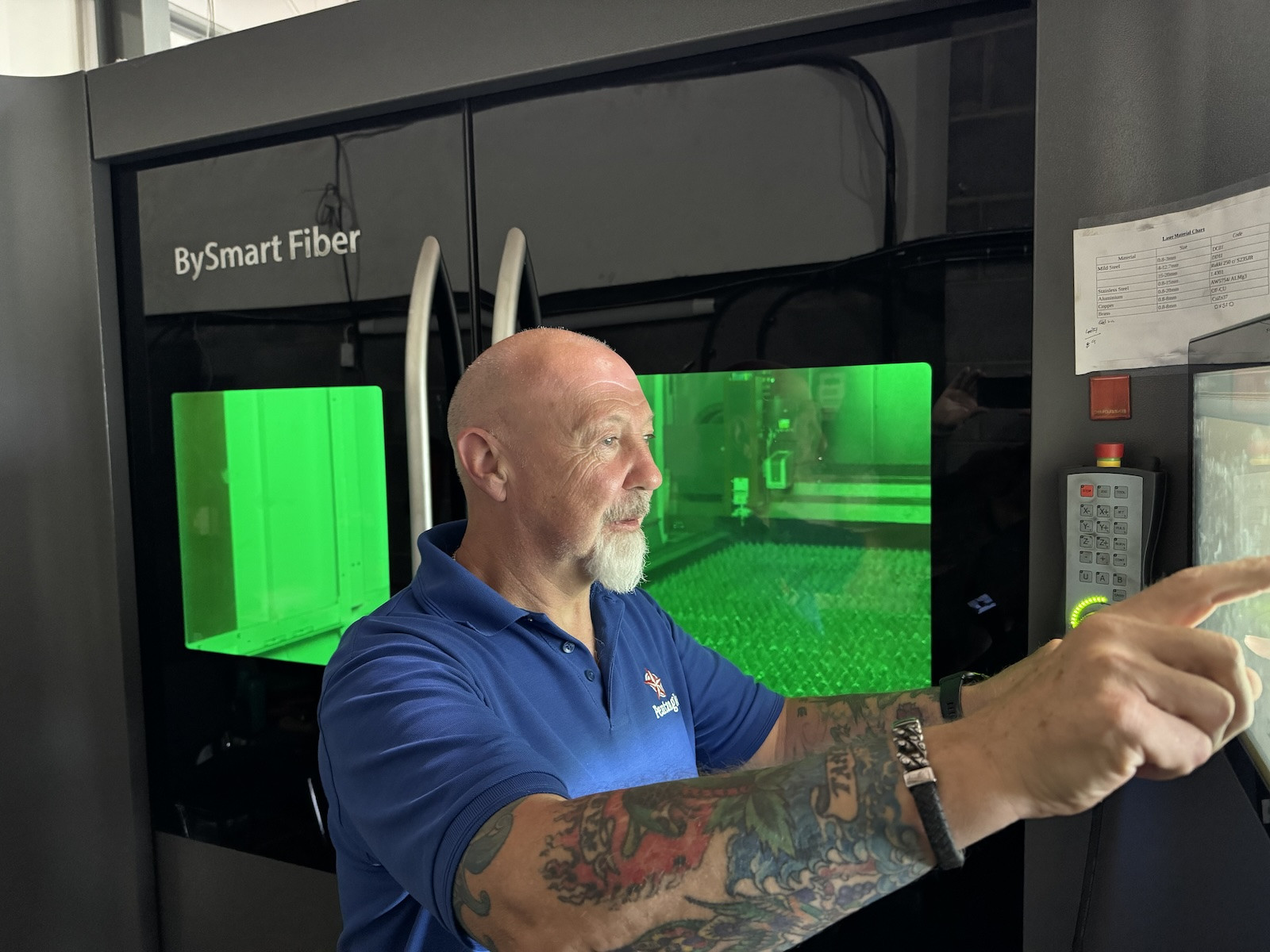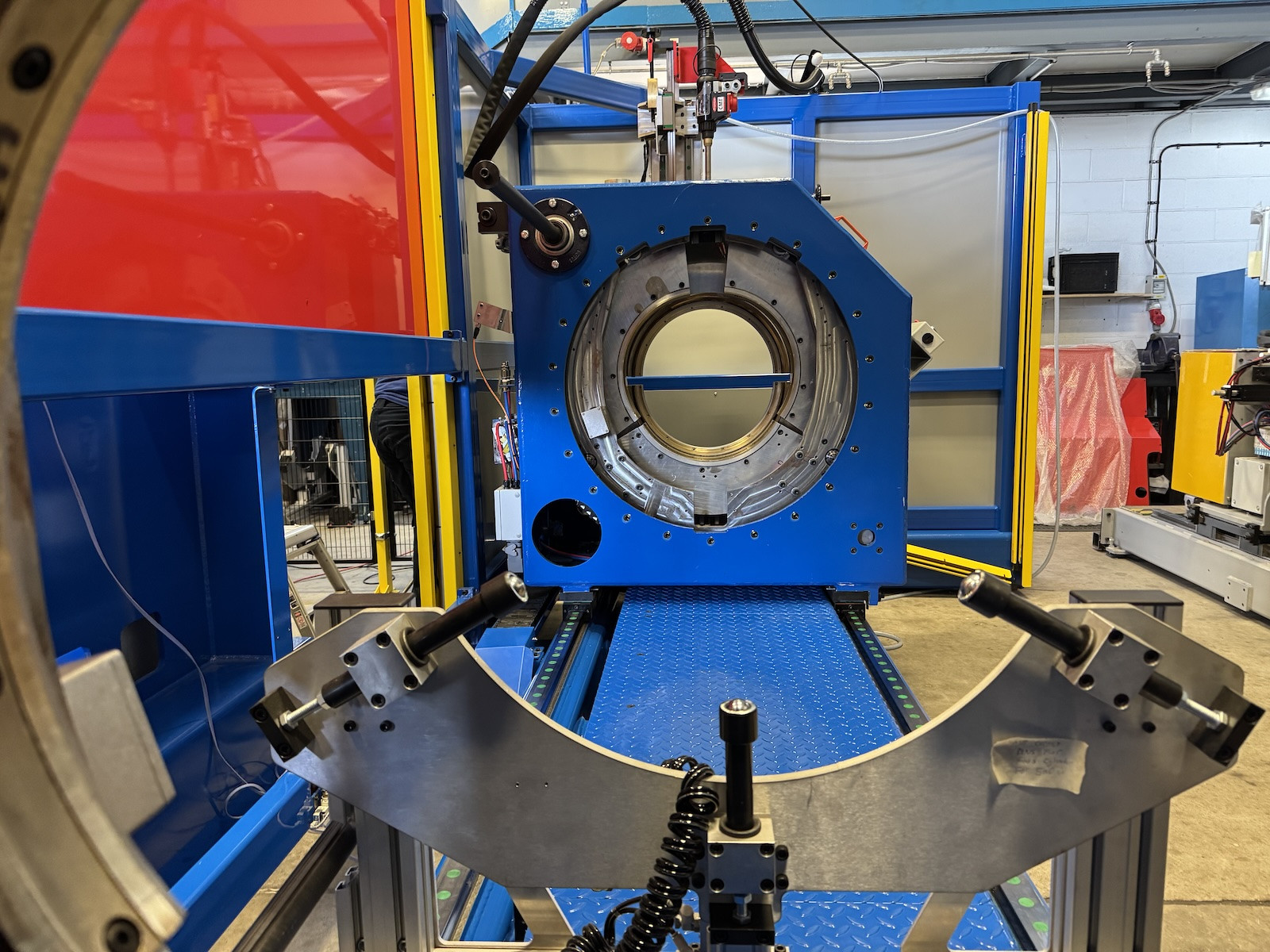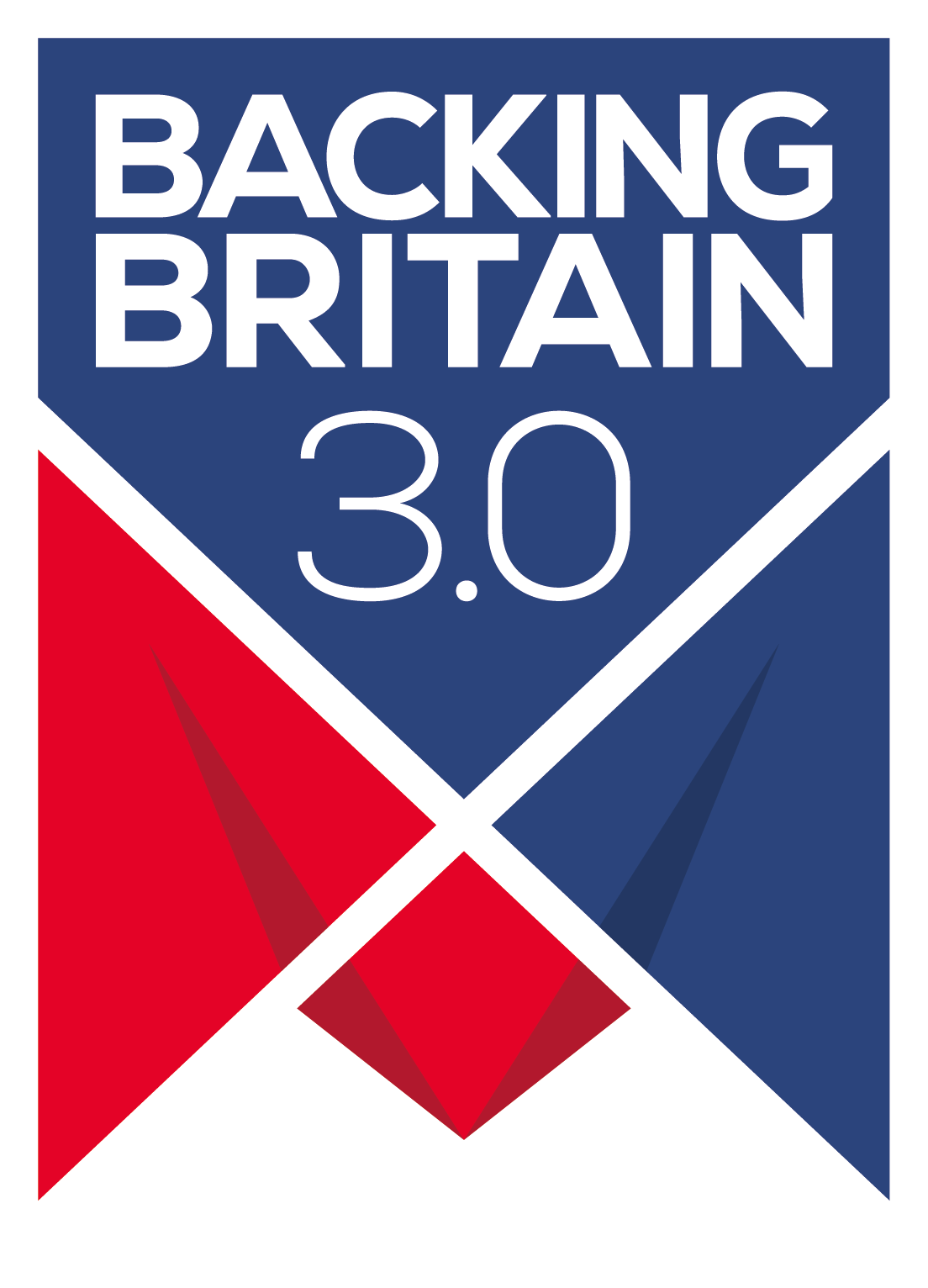
Pentangle Engineering: Backing Britain Through Skills, Community, and Innovation
In towns and cities across the UK, engineering firms form the backbone of the economy. They may not always make the headlines, but they are the lifeblood of British industry, investing in skills, creating jobs, and driving innovation. One such company is Pentangle Engineering, based in Grantham, Lincolnshire.
For Managing Director Nigel Rivers, “Backing Britain” isn’t a slogan, it’s a lived philosophy. From training apprentices to opening doors to local schools, from investing in cutting-edge automation to creating a workplace built on respect, Pentangle represents the kind of community anchored manufacturing business that keeps UK industry alive.

Opening the Doors to the Next Generation
If there’s one challenge facing British manufacturing today, it’s skills. Many experienced engineers are reaching retirement age, and too few young people see engineering as a viable, exciting career.
Rivers has taken matters into his own hands. “We like to employ local,” he explains, “but everyone we knew in engineering is now in their 60s. We’ve got to bring in a younger workforce, and that means training.”
Pentangle has partnered with local schools to deliver real, hands-on education. Every week, students come into the company’s workshops to learn the practical side of their engineering BTEC, from reading drawings to drilling holes and completing small projects. Over time, this has fed directly into Pentangle’s apprenticeship programme: nearly 20% of the company’s workforce are apprentices, a figure far above the national average.
It’s a model of what “Backing Britain” means at the ground level: not waiting for government or policy to solve the skills crisis, but taking proactive steps to grow local talent.
From Conservatory to Cutting-Edge
Pentangle’s story is rooted in resilience and ambition. Launched in 2004 from Rivers’ conservatory, with meetings around a colleague’s kitchen table, the business has grown into a supplier of robotic welding and automated machinery with four units and 28 staff.
This trajectory has been powered by bold investment. Pentangle has added a £500,000 laser cutter and several robotic welding cells worth £100,000 each, equipment that not only drives productivity but also acts as a demonstration facility for customers. “Clients can bring in parts, see them welded robotically, test the results, and take data away,” Rivers explains.
In a period when UK industry must compete globally on cost, efficiency, and speed, such investments ensure Britain can remain competitive.
Values That Strengthen Community
Backing Britain isn’t just about machines; it’s about people. Rivers leads with two core values—honesty and respect. “I’m an accidental MD,” he says. “I don’t wear a suit, I eat with the team, I talk at their level. It’s a family, even though we’re not related. If someone’s struggling, we support them.”
This ethos of openness extends beyond the shop floor. Pentangle takes part in National Manufacturing Day, inviting schools in to see modern engineering in action. The company also shares its story publicly, warts and all.
On platforms like LinkedIn, Rivers isn’t afraid to show vulnerability. He writes candidly about the challenges of running a business and the pressures facing UK manufacturing. “You can’t just promote positives all the time,” he insists. “Sharing problems brings advice and support. It’s about the group, not the individual.”
Automation: Securing Britain’s Future
Far from being a threat to jobs, automation is, in Rivers’ view, a lifeline for UK competitiveness. “It’s bittersweet,” he admits. “Yes, machines replace some skills, but those skills aren’t there. Automation supports British industry.”
This echoes broader research showing that with one in five workers retiring by the end of the decade, automation isn’t displacing people, it’s filling gaps and ensuring output continues. For firms like Pentangle, which specialise in robotics and automation, the shift is both an opportunity and a responsibility.
Looking ahead, Rivers sees AI as the next frontier, not just in robotics but in back-office functions such as quoting and project management. “We need to look at how AI can streamline the way we work,” he says, pointing to productivity gains that will allow small UK firms to compete with international rivals.
A Call to Back Britain
When asked directly what “Backing Britain” means to him, Rivers is clear: “We’ve lost our way terribly with industry. We used to be world-renowned, the best at certain things and I still believe we are. But we’re not seeing it, we’re not backing it, and we’re not putting our voices behind it. We need to step up.”
For Rivers, that means being visible, sharing successes, inviting in schools, collaborating with other local firms. It means building a succession plan so Pentangle outlives its founders. And it means continuing to invest in both people and technology so that UK manufacturing remains competitive.
Pentangle as a Microcosm of UK Industry
The story of Pentangle is not unique, but that’s precisely the point. Across the UK, hundreds of similar firms form the hidden strength of the economy. They don’t often grab headlines, but they are training apprentices, investing in advanced manufacturing, and holding communities together through good jobs and opportunities.
Pentangle shows what happens when a business doesn’t just talk about “Backing Britain,” but lives it:
-
20% apprenticeships, rooted in school partnerships.
-
Multi-million-pound investment in robotics and laser technology.
-
Open doors to community, education, and collaboration.
-
A culture of respect, honesty, and inclusion.
From conservatory beginnings to a modern automation powerhouse, Pentangle Engineering demonstrates that the future of UK industry doesn’t lie in looking abroad, it lies in backing Britain.






